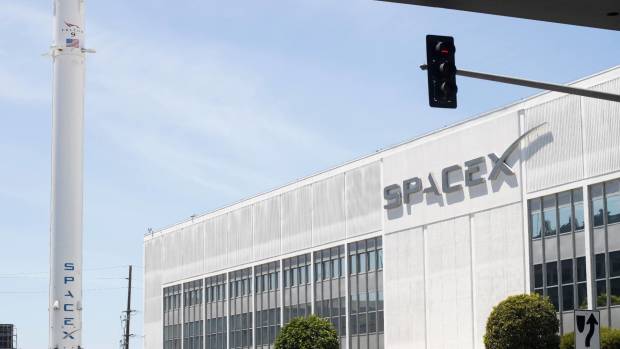
SpaceX, Elon Musk's private space exploration company, was recently valued at $150 billion, making it the most valuable private corporation in the U.S. The company in July had an arrangement with investors to sell up to $750 million of stock at $81 per share, up from its last stock price of $77.
SpaceX recently told investors, per The Information, that it expects to see revenue of $8 billion in 2023, a number that would just about double the revenue the company saw in 2022.
DON'T MISS: SpaceX Has Some Wild Predictions for the Rest of 2023
But amid these soaring valuations, Greg Martin, the co-founder and managing director of Rainmaker Securities, thinks the company might be a bit overvalued, though he added that it is tough to bet against Musk.
SpaceX is currently the dominant rocket-launching company in the sector, which, according to Martin, is a "good business, but not a great business." The reason is that SpaceX can only launch so many times per year, which means there's a revenue cap on that leg of the business.
But an offshoot of SpaceX's rocket launching is Starlink, the company's internet-providing satellite constellation. Currently, there are around 4,400 Starlink satellites in orbit, though SpaceX wants to send up as many as 30,000 or more. This is part of the business Martin thinks could be worth a lot, but only if SpaceX is able to gain tens of millions of subscribers. Starlink currently has 1.5 million subscribers; that number was at zero a little more than two years ago.
More Elon Musk:
- Elon Musk Says He Has the Answer About Aliens
- Elon Musk Shares His Unusual Vision For a Safer Form of AI
- Elon Musk Had a Monumental Week
"That's a good business. But the question is whether it's worth $150 billion or not," Martin said. Starlink has seen good growth and has a lot of potential, but it also has a lot of competition.
Musk's Starship project -- which SpaceX says "will be the world’s most powerful launch vehicle ever developed" -- likewise has a lot of potential in terms of disrupting international freight, something it could do at much greater speeds and lower costs than current options, Martin said. But the problem is that Starship "isn't really up and running yet."
"There's a lot to like in terms of the company and its position and its leading marketplace market position. It's just really a question of what the right value is," Martin said. "I think there's a lot of leaps of faith you need to make about SpaceX to kind of see a real return potential above 150 billion, but it's certainly possible."
Martin acknowledged that there might at some point be a space travel revenue stream going into SpaceX if Musk's dreams of Mars ever become a reality. But he's not considering that as a potential, yet. The biggest revenue potential is Starlink. And the freight business "feels pretty real."
Although SpaceX is currently the leading private rocket ship company, Martin thinks "inevitably, their market share will come down."
Despite the many hurdles to SpaceX seeing truly significant revenue growth -- with many of its potential revenue streams predicated on the success of Starship -- Martin didn't expect SpaceX to hit a $150 billion valuation in the first place.
He said he personally wouldn't buy into the company right now, but he wouldn't short it, either.
"It's the one company that has defied gravity. It has always gone up. When you grow so fast from zero to 1.5 million subscribers, people can slap any kind of crazy projections on you and make the numbers work," Martin said. "But if at some point you start to see a ceiling on growth on the Starlink business, then you have to rein in your valuation projections. What I don't know is whether that will happen."







